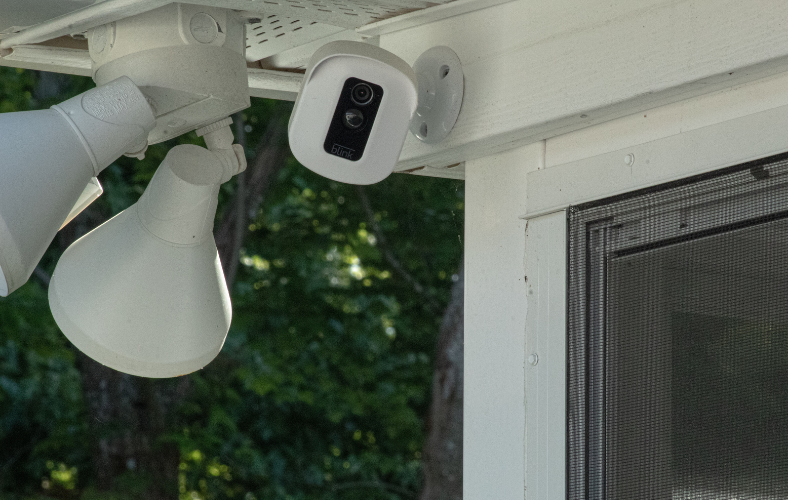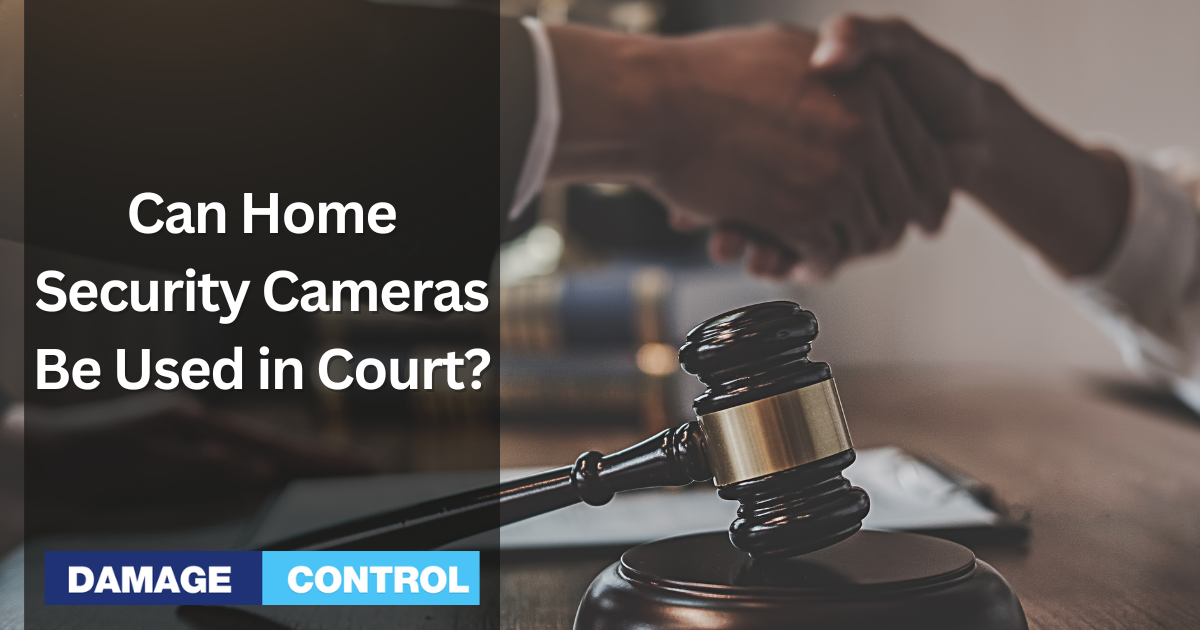In the 21st century, technology has rapidly embedded itself into our day-to-day lives. It's not just about smartphones and laptops anymore. In a quiet but resolute way, technology has seeped into areas that have traditionally been far removed from the digital world. One such area is home safety, where the rise of home security cameras has been particularly remarkable.
Home security cameras, once a luxury reserved for the affluent or overly cautious, have now become a common household item. From compact indoor models that keep an eye on your belongings to weatherproof outdoor variants that monitor your premises, these devices provide an added layer of security, acting as a digital watchguard for your abode.
As these security devices capture footage around the clock, a thought-provoking question emerges: can these silent observers' recorded data be used in court? In other words, does the vigilant eye of your home security camera carry any weight in the legal arena?
The question may seem straightforward, but the answer is not as simple as a “yes” or “no”. It revolves around a complex matrix of factors that include privacy laws, the quality of the footage, the handling of the recorded data, and its relevance to the legal matter at hand.
In essence, while technology and law might seem like two distinct realms, they often intersect in fascinating ways. The case of home security cameras and their legal standing is a shining example of this interplay, where bytes and pixels can potentially tip the scales of justice.
Home Security Cameras: A Brief Overview
Before delving into the heart of our topic, we should first understand the essence of home security cameras. These are digitally powered devices crafted to oversee activities both inside and outside your residence. They play a vital role in monitoring potential intruders, documenting significant occurrences, and providing homeowners with an enhanced sense of security. It's worth noting that home security cameras have now become a prevalent addition to many households globally.
Legal Standing of Home Security Footage

Delving deeper into the question of whether home security footage can be used in court, it's imperative to understand that a plain “yes” does not encapsulate the complexities involved. There's a multitude of factors that come into play, each holding significant weight in determining the admissibility of such evidence.
Adherence to Privacy Laws
Firstly, and perhaps most importantly, your home security cameras must be in strict compliance with privacy laws. These laws can differ significantly depending on your location or jurisdiction. A common principle, however, is that you cannot record footage in places where people have a reasonable expectation of privacy.
Imagine this: You wouldn't want someone to secretly film inside your house, would you? It's the same principle. If your camera points inside someone else's home, or any area deemed private, it's a direct infringement of their privacy. As a consequence, this footage would not be permissible in court. Therefore, cameras should be carefully placed in public or semi-public areas where privacy isn't expected, like your own backyard or front door.
Clarity of the Footage
Secondly, courts require clear-cut, unequivocal evidence. They are not places for speculation or conjecture. If your home security footage is blurry, grainy, or unclear in any way, it might cause more confusion than clarification. Such a scenario is counterproductive and may lead to the court rejecting the footage. Thus, the quality of your home security footage is critical. Modern security cameras, with high-resolution features, could prove invaluable in these cases.
Chain of Custody
Next, let's talk about the chain of custody. This term refers to the chronological documentation or paper trail that records the sequence of control, custody, analysis, and disposition of physical or electronic evidence. In simpler terms, it's a trail showing who handled the footage from the time it was recorded until it's presented in court.
If there's any doubt about the authenticity or the handling of the footage, if it's unclear who had access to it or if the chain of custody has been broken, the court may rule the evidence as inadmissible. It's crucial, then, to meticulously document and protect your security footage.
Relevance to the Case
Finally, relevance is key. In the hustle and bustle of legal proceedings, it's essential that the video directly ties in with the case at hand. Any footage that doesn’t contain anything related to the case, regardless of its quality or how well you've maintained the chain of custody, simply won't hold any weight as evidence.
Home security cameras can be a powerful tool for home safety and legal matters. But to navigate the complex legal waters successfully, one must keep in mind these factors – privacy, quality, chain of custody, and relevance. Only when these four pillars stand firm can your home security footage find its place in the court of law.
Making the Most of Your Security Camera

While merely owning a security camera is a commendable step, its effectiveness in legal scenarios is determined by its proper use and upkeep. It's essential to ensure that cameras are placed thoughtfully to capture as much of your property as possible, reducing blind spots.
Regular maintenance is non-negotiable, with a particular emphasis on verifying that the date and time settings are accurate. Furthermore, it's of utmost importance to save or back up any relevant footage, anticipating its potential significance in unforeseen incidents.
Lastly, always prioritize privacy by ensuring cameras aren’t directed at places where individuals rightfully expect discretion, such as a neighbor's home. In short, a camera’s true worth is realized through strategic placement, diligent maintenance, conscientious data storage, and unwavering respect for privacy.
Conclusion
To wrap things up, home security cameras can indeed be used in court. However, there are legal and practical factors that influence the admissibility of the footage. By understanding these, you can make the most of your home security camera, ensuring not just a safe home, but also a potent tool in any legal circumstance.
While the law may be complex and often intimidating, remember, it's designed to ensure justice. Respect its boundaries, adhere to the guidelines, and your home security camera can certainly lend a helping hand in the court of law.

